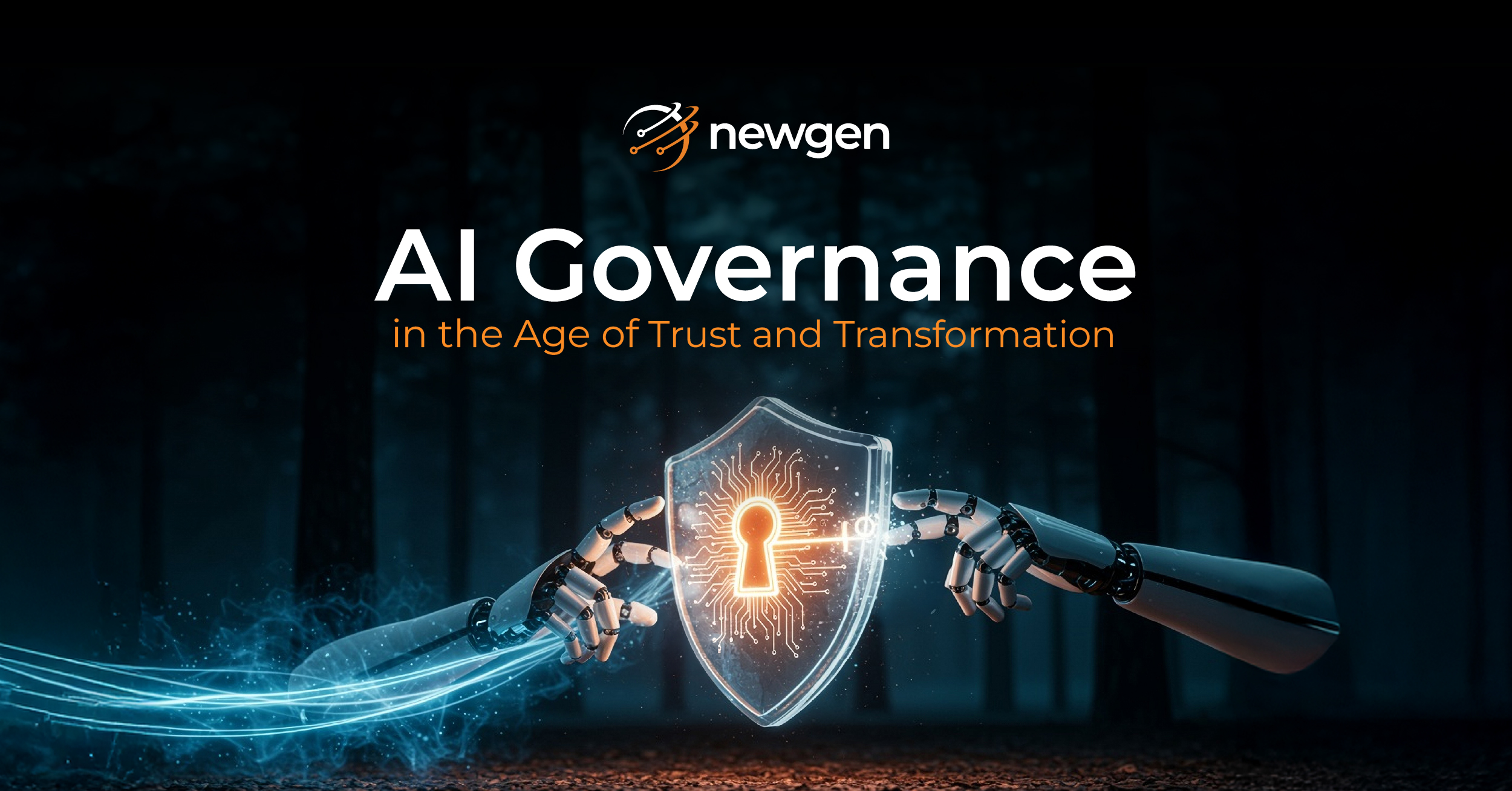Unchecked AI Can Damage Trust
Living in the artificial intelligence (AI) era has changed how industries work and serve their customers. AI gave businesses the tools to not only make smarter, data-driven decisions, but also to stay ahead of risks in real time. In addition, AI made it possible for companies to deliver truly hyper-personalized customer experience. But as AI gained ground, so did the risks to its adoption. In fact, a recent news article in CNBC, “AI System Wrongfully Denies Loans to Minority Communities,” continues to remind us why global organizations need responsible AI practices.
Concerns have been growing around unchecked AI, where innovation outpaces regulations. Without strong governance and ethics in check, trust is at risk. Gartner predicted that over 40% of AI-related data breaches will surface from the mismanagement of generative AI (GenAI) usage across borders by 2027. By embedding governance frameworks into AI from inception, we can build more reliable financial systems that benefit everyone.
However, many see AI as a tool to power fair decisions, improve security, and safeguard consumer data. But to bring this vision to life, companies must prioritize strong governance and ethics in every aspect of AI deployment.
AI Governance in 2025
AI has emerged as a key driver for organizational success. However, a pressing question remains: How can organizations guarantee that their influence is exercised in a responsible manner?
AI governance is no longer optional but a top priority. The EU AI Act, with penalties reaching up to €35 million, sent a clear message to global AI governance – to get it right. And, it isn’t just about avoiding penalties, unchecked AI systems can reinforce bias, expose sensitive data, and harm brand reputation.
Companies that have mastered AI have been strategizing the use of mindful AI. McKinsey’s 2025 Global AI Survey highlighted that top companies have been adopting crucial AI changes, such as redesigning processes to support generative AI, assigning senior leaders to guide AI decisions, and treating responsible AI as a driver of financial performance. Prioritizing AI governance is about gaining a competitive edge while staying true to ethics and regulations.
Key Concerns of Ungoverned AI
AI will continue to be increasingly influential, making it necessary for organizations to build trust in how it is used. And, failing to do so can put organizations in serious ethical, legal, and operational risks. The key areas of concern include:
- Bias and Fairness: AI systems can pick up bias from the training data, which can lead to unfair decisions in critical areas such as lending, hiring, and healthcare
- Regulatory Compliance: With growing number of global AI regulations, such as the EU AI Act and the U.S. Blueprint for an AI Bill of Rights, it is getting tricky for companies to keep up. Ignoring these regulations can lead to large fines, loss of public trust, and operational disruptions
- Security and Privacy: AI systems manage large volumes of sensitive data, making them a prime target for cyberattacks. Strong governance frameworks can protect that data while ensuring responsible usage
- Transparency and Explainability: Since AI impacts high-stakes decisions, stakeholders need to understand how these systems work. Good governance promotes clarity, builds transparency, and allows users to count on AI outcomes
The Pillars of AI Governance
The advantages of AI are huge, but so are the setbacks! To make the most of AI while keeping risks in check, companies need a coordinated approach to governance. The following core principles can help organizations build AI systems that aren’t only powerful but ethical, accountable, and aligned to their business and societal values.
1. AI Guardrails
Enable continuous monitoring, real-time feedback loops, and routine audits with in-built guardrails to check the overall performance and accuracy of the AI systems. These guardrails become crucial around areas including data lineage, sharing and scoring, as well as the implementation of large language models (LLM) and agentic AI systems.
2. Ethical AI Frameworks
Organizations need to define ethical AI principles that align with their mission and values. The key principles include:
- Fairness and Bias Mitigation: Ensure that systems are free from discrimination based on race, gender, or socio-economic status
- Accountability: Assign clear responsibilities for AI-driven decisions within the organization
- Transparency and Explainability: Maintain visibility into AI decision-making processes, by integrating Explainable AI (XAI) for detailed, user-friendly explanations and interpretability for simplified insights into complex underlying models. As per a McKinsey report, XAI must create an ecosystem that benefits technical, legal and business stakeholders
3. Risk Management and Compliance
A solid AI governance strategy needs a structured risk management framework to manage risks. This means regularly conducting audits of AI models, staying updated on global and local AI regulations, and establishing incident response plans for AI failures.
4. Data Governance and Security
AI’s value relies on the quality of the data it is trained on. A strong data governance strategy needs emphasis on the quality of data, privacy controls, and strict access controls to protect sensitive information and maintain responsible data usage.
5. Trusted AI
AI systems must earn public and regulatory trust by being consistently reliable, secure, transparent, and aligned with ethical standards.
How Newgen Tackles AI Governance
Newgen champions responsible AI through the secure and compliant NewgenONE platform. With built-in governance, multi-layer security, and full auditability, it helps organizations stay aligned with evolving regulations. Newgen’s Agentic Customer Journey uses NewgenONE AI Agents to deliver explainable, evidence-based decisions using customer-approved data. With the Agentic Shield, businesses can define boundaries, enforce policies, and monitor agent performance—ensuring AI remains ethical, transparent, and aligned with business’s goals.
You might be interested in

22 Jan, 2026
Why storing everything is not the optimal email archiving strategy for 2026



